blog
Interview with featured photographer Daria Nazarova
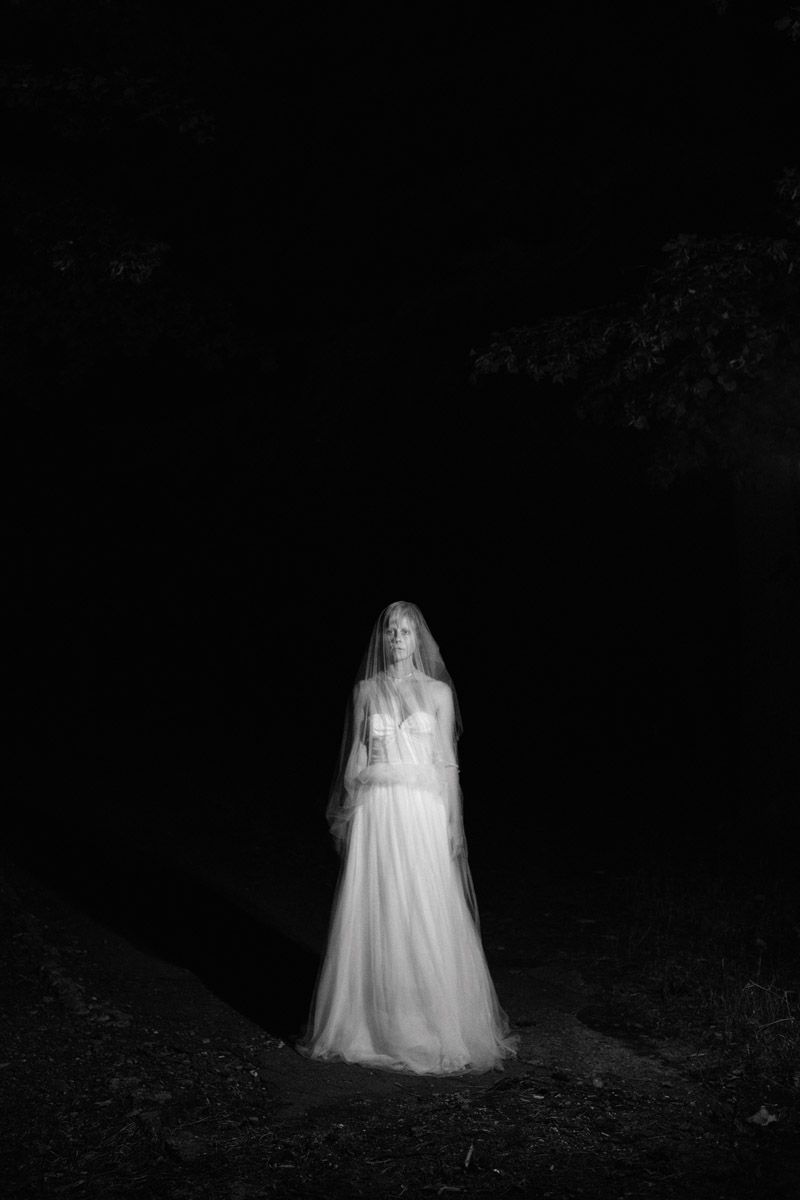
Natura
Daria Nazarova began working as a model for art students to connect with others and feel less alienated after immigrating to Georgia when Russia invaded Ukraine. Through the stillness, she found a connection to her feeling that her life was on hold while she figured out what came next. The project is a collaboration with the students, as Daria documents her modeling as well as the results of their work together.
::
F-Stop Magazine: Can you tell us a bit about yourself? How did you become involved in photography?
Daria Nazarova (DN): My first love took my father’s old camera and started photographing me. I liked what he was doing, and soon I began using this camera too, photographing my friends, family, and loves. I was 18 at the time, and at first, it wasn’t serious. But once I started working on projects, I couldn’t stop. Photography quickly became an inseparable part of my life.
F-Stop: The current issue of F-Stop Magazine includes images from your work “Natura”. Can you tell us about this project?
DN: Natura is my way of navigating the challenges of adapting to a new culture and environment. Through collaboration with young students of the Tbilisi Academy of Arts and my connection to Georgia’s nature, I try to find meaning and belonging in a world that feels unfamiliar. At the same time, this project reflects my personal experience of the events of February 2022, when the war [in Ukraine] began. It captures a state of being frozen—my body caught between time and space, unsure of where to move next.
F-Stop: How does this project relate or differ from your other work?
DN: All my previous projects were shot in color, while Natura feels much darker and more mystical than anything I’ve done before. In the past, I worked on very personal topics—my family, friends, and my home country. Now, I am separated from my roots, my old friends, and my former life. This isolation has changed both me and my visual language completely.
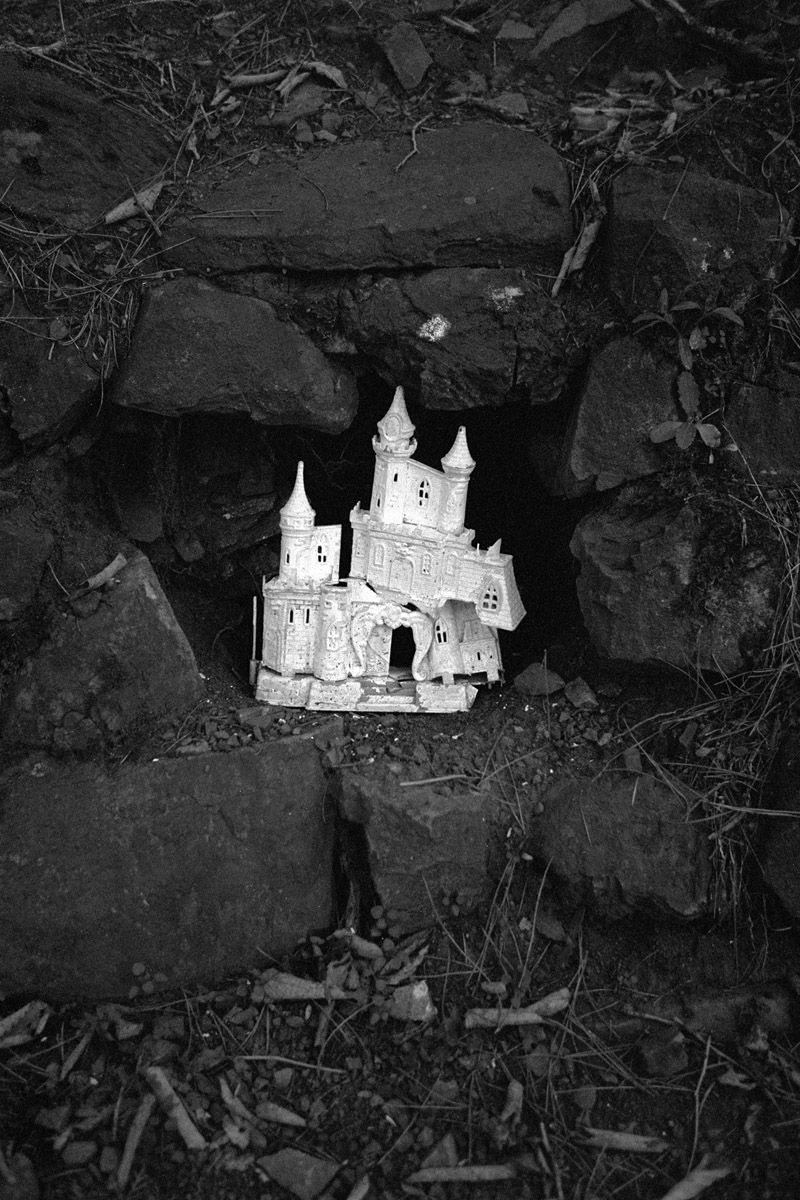
Natura
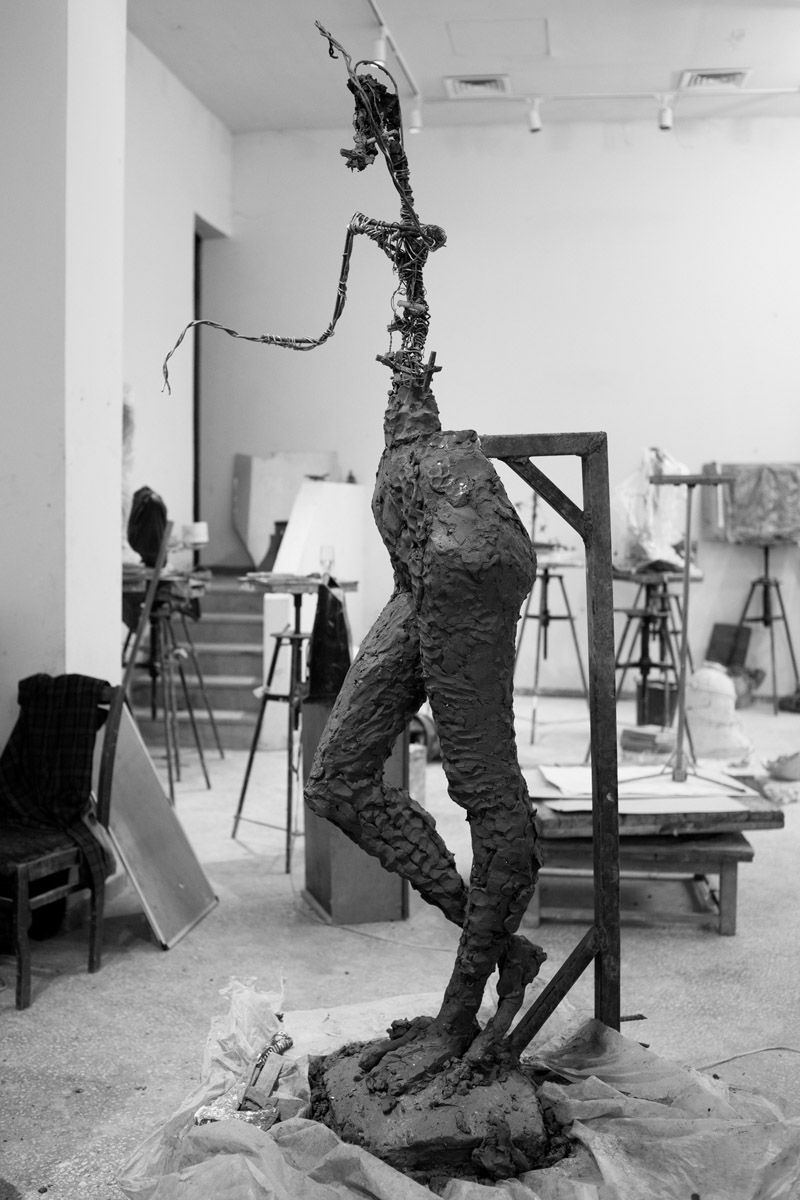
Natura
F-Stop: What is your process for making these images or your creative process more generally? What motivates you to make the images you create?
DN: I draw inspiration from life and the events happening around me. My images are how I process and express what I see and feel. The first two years in emigration were especially difficult for me, and that’s reflected in the somber mood and lack of color in this series. I don’t choose themes intentionally—they find me. I capture what feels urgent and true in the moment, what deeply matters to me.
F-Stop: Do you have a favorite image in this series?
DN: Yes, there is one photo that shaped the entire project. It’s a portrait of my naked body against the background of a dark cave. A friend, who is a sculptor, pressed the shutter for me, while I posed in front of the camera and for students who were simultaneously drawing from my body. At that moment, I felt like my body was no longer entirely mine. Being a model is a complex, often inexplicable sensation, but I’ve tried to capture its essence through this project.
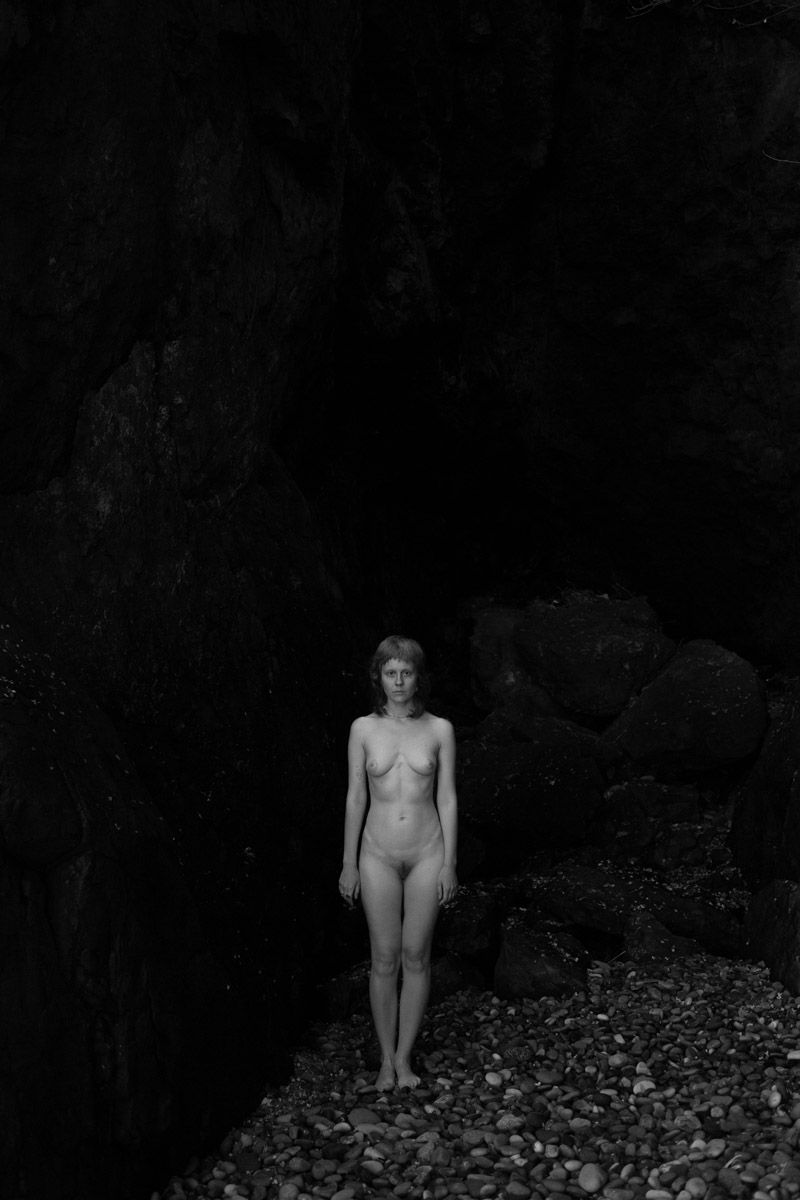
Natura
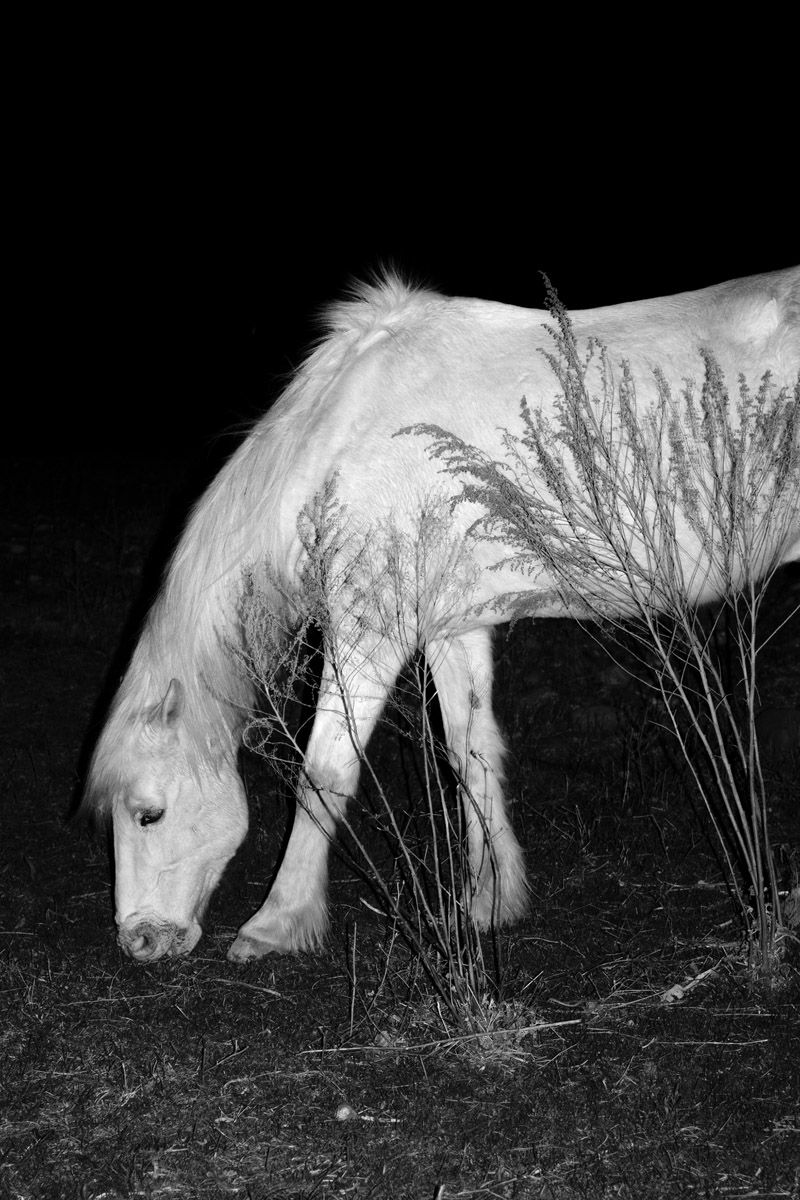
Natura
F-Stop: Which artists or photographers most inform your creative practice? And why?
DN: I am deeply inspired by the intimacy in Nan Goldin’s portraits, the raw emotion in Francesca Woodman’s work, vibrant exploration of youth and freedom by Wolfgang Tillmans and Ryan McGinley. Carolyn Drake’s deep engagement with her subjects and Claudine Doury’s poetic narratives have also resonated with me for years.
Among painters, I admire Mikhail Vrubel, Hilma af Klint, Bill Viola, Marina Abramović, and Andrew Wyeth. Their works explore themes of spirituality, vulnerability, and human connection in ways that deeply move me.
In Georgia, I try to attend exhibitions in museums and galleries, where I have discovered artists like Vakho Khetaguri, Gia Chkhatarashvili, Dina Oganova, and Guram Tsibakhashvili. Among modern artists, my favorites are Vakho Bugadze, Uta Bekaia, and Guram Shavdia. I love the timeless work of Pirosmani, Merab Abramishvili and Elene Akhvlediani. Art has saved me during some of the darkest moments in my life. It has the power to pull you out of crisis and into a space of healing and transformation, and that’s why it remains at the center of everything I do.
F-Stop: Are you working on any other projects currently?
DN: Right now, my main focus is presenting Natura at exhibitions and festivals. I’m not actively working on a new project yet, as I’m still immersed in shooting for this series. At the same time, I’ve been revisiting my photo archives. During the pandemic, I spent time in a small village near Pskov, Russia, and documented that unique experience. Now, in emigration, I view those images in a completely different light, and I think they hold the potential for something meaningful.
::
Daria Nazarova (b. 1991, Russia) is a visual artist currently based in Tbilisi, Georgia. She works in various media, including photography, photo books, archival research. She’s interested in things outside the usual human perception, alternate worlds, closed communities. With artistic practice, she tries to capture the connection between generations, man and place, nature and human. Daria is concerned about our past and present experiences affecting the formation of our personality and the society as a whole.
To see more of Daria’s work visit nazarovadaria.com
Location: Online Type: Black and White, Featured Photographer, Interview, Nature
Events by Location
Post Categories
Tags
- Abstract
- Alternative process
- Architecture
- Artist Talk
- artistic residency
- Biennial
- Black and White
- Book Fair
- Car culture
- Charity
- Childhood
- Children
- Cities
- Collaboration
- Community
- Cyanotype
- Documentary
- Environment
- Event
- Exhibition
- Faith
- Family
- Fashion
- Festival
- Film Review
- Food
- Friendship
- FStop20th
- Gender
- Gun Culture
- Habitat
- Hom
- home
- journal
- Landscapes
- Lecture
- Love
- Masculinity
- Mental Health
- Migration
- Museums
- Music
- Nature
- Night
- nuclear
- p
- photographic residency
- Photomontage
- Plants
- Podcast
- Portraits
- Prairies
- Religion
- River
- Still Life
- Street Photography
- Tourism
- UFO
- Water
- Zine

Leave a Reply